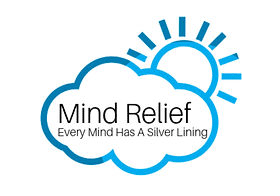Understanding Social Anxiety and the Benefits of CBT


What Is Social Anxiety?
Social anxiety, also known as social anxiety disorder, is more than just shyness or a fear of public speaking. It's a persistent and overwhelming fear of social situations, where a person worries about being judged, embarrassed, or scrutinized by others. These feelings can interfere with daily activities, such as going to work or school, participating in group activities, or even having simple conversations.
Everyone feels nervous in social situations from time to time, but for those struggling with social anxiety, these feelings are intense, long-lasting, and difficult to control.
Comprehensive Evaluation: A detailed clinical interview, behavioural questionnaires, and
input from family members, teachers, or employers help create a holistic picture of an
individual’s functioning.
Rule-Out of Other Conditions: Many conditions such as anxiety, depression, learning disabilities, and sleep disorders can mimic or coexist with ADHD. Assessment ensures an accurate understanding of what is truly occurring.
identify individual strengths, weaknesses, and unique needs, forming the foundation for an
effective care plan.
How Social Anxiety Affects Daily Life
Social anxiety can have a significant impact on a person’s quality of life. It might lead to:
Missing out on opportunities (like jobs or friendships) because of fear.

Talk to me today!
Common Signs and Symptoms of Social Anxiety
Social anxiety can show up in many ways, both physically and emotionally. Here are some common signs:
- Physical symptoms: Rapid heartbeat, sweating, trembling, blushing, feeling faint or nauseated.
- Emotional symptoms: Excessive worry about social interactions, overthinking after social events, fear of being judged, self consciousness.
- Behavioural symptoms: Avoiding social situations, staying silent or in the background, or using safety behaviours (like always being on your phone to avoid talking).
“I am so glad I came to Mind Relief, I felt at ease to talk about my issues, which I have never spoken about before and it has certainly made a difference in my life.”
“I found the experience hugely beneficial, Sadef was constructive and gave compassionate help.”
“Sadef is a fantastic therapist. I had a good experience as Sadef was so attentive and focused on helping me reach my goals in such a short time frame, which I didnt expect.”
The Benefits of CBT for Social Anxiety
- Skills for life: You learn practical tools that you can use long after therapy ends.
- Personalized approach: CBT can be tailored to your specific fears, goals, and situations.
- Empowerment: CBT helps you become your own therapist, so you can manage challenges in
the future.
